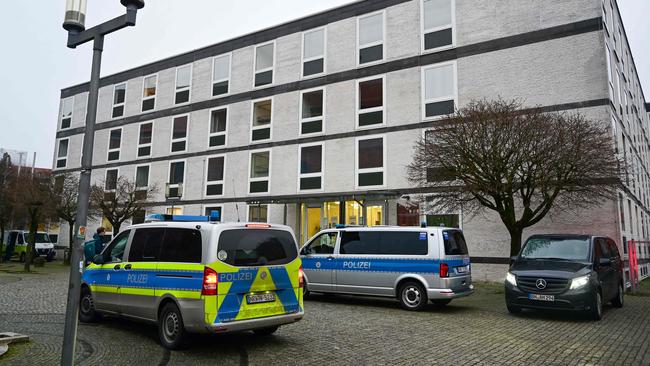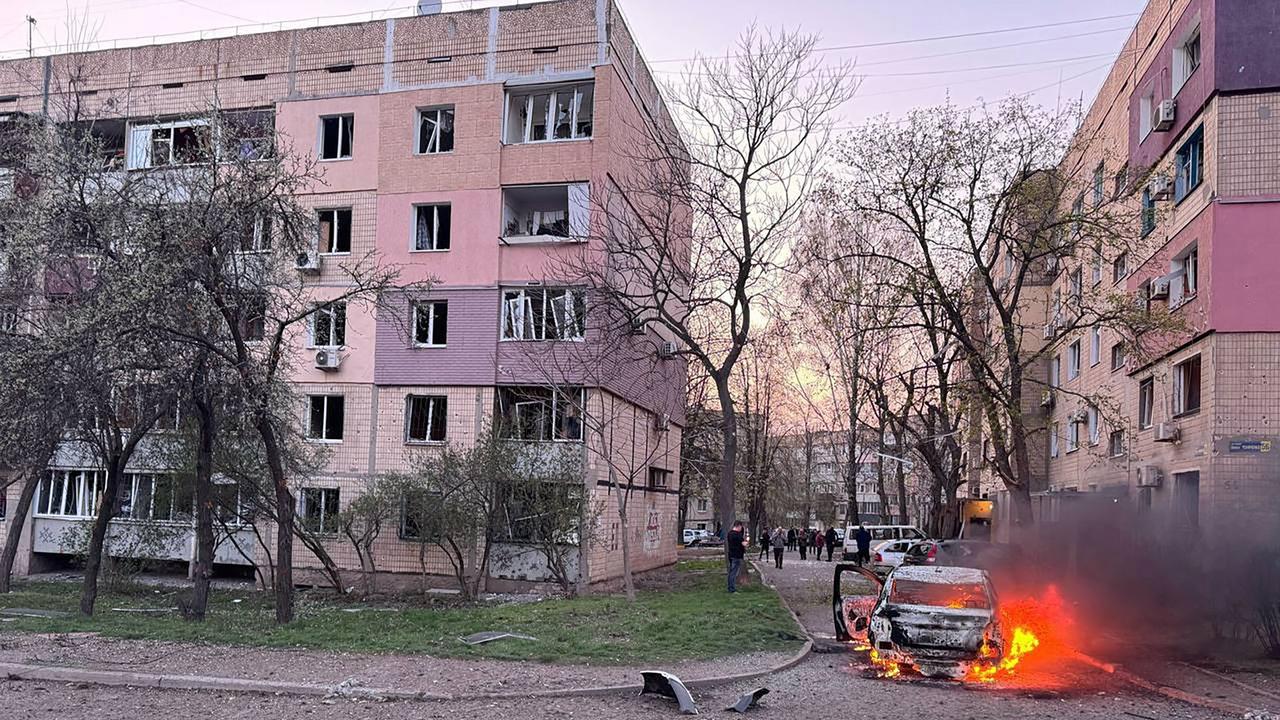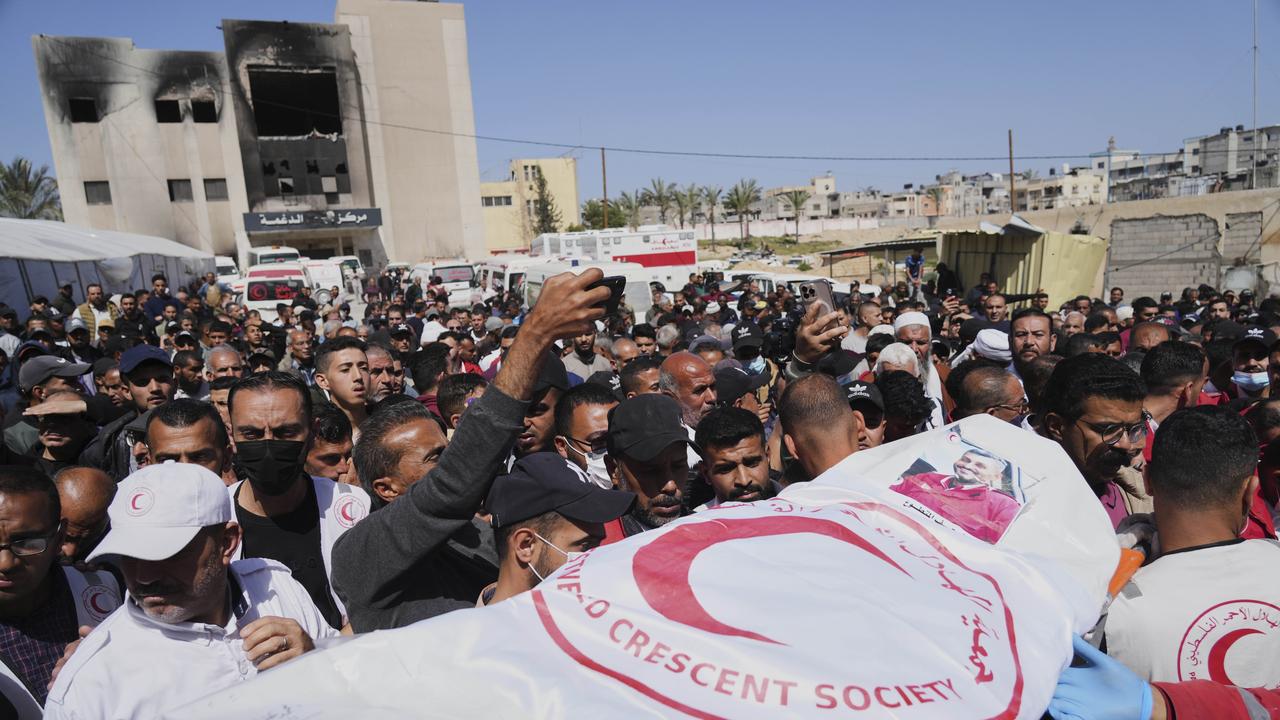New terror threat is emerging in Europe linked to Iran, Gaza war
Authorities in Europe say they have foiled several terror plots, some involving suspects posing as refugees, raising alarm about a growing array of threats from extremists.

Authorities in Europe say they have foiled several terror plots, some involving suspects posing as refugees, raising alarm about a growing array of threats from extremists.
In one previously unreported investigation last December, police in Austria and Bosnia arrested two separate groups of Afghan and Syrian refugees who carried arms and ammunition, including Kalashnikov assault rifles and pistols.
Investigators found pictures of Jewish and Israeli targets in Europe on some of the suspects’ mobile phones, which they said suggested they were motivated by Israel’s war against Hamas in Gaza.
This followed the arrest late last year of a group of Tajik nationals suspected of planning attacks on the Cologne Cathedral in Germany and St. Stephen’s Cathedral in Vienna around Christmas. Both churches fill with hundreds of visitors for the holiday season.
Then, on Monday, Italian authorities said they had detained three Palestinians suspected of being members of the Al Aqsa Martyrs’ Brigade, designated as a terror group by the U.S. and the European Union. The three were preparing to attack civilian and military targets in Europe, the Italian National Police said.
Investigators said the separate incidents suggest Europe’s terror threat isn’t only growing but also coming from new sources, complicating the work of security agencies. A wave of attacks that hit the continent starting in 2015 was largely inspired, and in part directed, by Islamic State, the Sunni terror militia in Syria and Iraq. Now the threat is coming not just from Islamic State Khorasan, Islamic State’s Afghanistan-based successor organisation, but also from Iran and its proxies in the Middle East, including Hezbollah and Hamas.
Germany’s domestic intelligence agency, the Federal Office for the Protection of the Constitution, warned late last year that these and other actors were being galvanised by the war in Gaza and that Jews and Jewish institutions across Europe were among the potential targets.
Late last year, German police launched raids across the country targeting Hamas and its affiliates. German and Dutch investigators also arrested four people for allegedly receiving the order from Hamas to open a secret cache of weapons and attack Jewish targets in Berlin and elsewhere in Western Europe.
German prosecutors said Hamas had buried the weapons underground in Europe years ago but that the suspects, all longstanding Hamas members involved in the group’s overseas operations, wouldn’t reveal where.
Hamas, Hezbollah and European organisations close to them have used the war in Gaza for propaganda, recruitment and fundraising, German security officials said. Donations from individuals in Europe for Hamas and Hezbollah have soared since Hamas’s Oct. 7 attack that Israel says killed about 1,200 of its people, officials said. The groups have also ramped up online activities and encouraged protests against the war in Gaza across European cities.
Both Hamas and Hezbollah have so far used Europe as a fundraising hub and a safe house for operatives. But the recent raids on Hamas suggest those groups are now pivoting to plotting assassinations and sabotage in Europe, directed mainly at Jewish and Israeli targets, security officials from several countries said.

At the same time, the case of the Tajik suspects raises concern that terror groups, including Iran and its proxies, are again using the influx of refugees into Europe to infiltrate the region. Most of the Islamic State terrorists who struck Paris in 2015 arrived from Syria and Iraq posing as refugees, and more than a million asylum seekers applied for refugee status in the EU last year, the biggest number since that time.
In November, German authorities raided the Islamic Center Hamburg and other organisations in the city on suspicion of supporting Hezbollah, which the country considers a terror organisation.
The centre, which runs the blue-tiled Imam Ali Mosque located in an upmarket lakeside district of the northern German city, is one of “Iran’s most important representations in Germany and a significant source of propaganda for Iran in Europe,” according to a German domestic intelligence report published last year. The centre didn’t immediately respond to a request for comment. It said in a statement last year that it was cooperating with investigators and expressed confidence that their suspicions would be dismissed.
Iran has a history of targeting dissidents and domestic opponents abroad. But more recently, Tehran has also been taking aim at Jews on the continent. In December, a German-Iranian man was sentenced by a German court to nearly three years in jail for attempting to firebomb a synagogue in the city of Bochum on behalf of the Iranian government in November 2022.
In 2017, a Berlin court sentenced a Pakistani student to more than four years in prison for spying on the former president of the German-Israeli Society on behalf of the Iranian government in preparation for a possible assassination.
In a conspiracy foiled in late 2021 but only reported by Radio Sweden last month, Tehran deployed two agents posing as a married refugee couple to Sweden, where they plotted the murder of three prominent Jewish leaders, according to Swedish authorities.
The targets were Saskia Pantell, former head of the Zionist Federation, Aron Verständig, chairman of the Swedish Jewish Communities, and a third person who was kept anonymous.
The suspected assassins, named as Mahdi Ramezani and Fereshteh Sanaefarid, arrived in Sweden pretending to be Afghan refugees in 2015 and obtained asylum two years later, according to Swedish officials. Authorities believe the couple were sleeper agents of the Islamic Revolutionary Guard Corps, an Iranian military group designated as a terrorist organisation in the U.S., and that they were tasked with the murders in 2021. The Swedish prosecutor said the suspects denied the accusations.
Shortly after they were activated by their handlers, the Swedish security services arrested them following an intelligence tip-off. The pair spent months in detention and were deported to Iran in 2022, since evidence gathered by intelligence services wasn’t admissible in court. An Iranian Embassy official who allegedly liaised with the couple was expelled from Sweden. The embassy, the Iranian mission to the United Nations and Iran’s Foreign Ministry didn’t immediately respond to a request for comment.
“The people they targeted are seen as representing institutions connected to what they see as the enemy state, Israel, even though we were simply Jews living in Sweden,” Pantell said.
Security police contacted Pantell and the other suspected targets in 2021 and explained how Iranian assassins had been planning to kill them. Pantell was told that the Iranian Embassy helped them track her movements.
“It was very difficult to cope with that situation for me and my family, but I will not let myself be intimidated and I will continue to speak up for Swedish Jews,” Verständig, the other alleged target, said.
Pantell, who has since moved to Israel, says that Europe has experienced an explosion of antisemitism since Oct. 7.
“Here we live with constant air-raid alerts but we are not going back to Sweden because we feel safer in Israel even in a bomb shelter,” she said.
SAPO, Sweden’s security service, declined to comment.
Write to Bojan Pancevski at bojan.pancevski@wsj.com (END) Dow Jones Newswires March 11, 2024 23:00 ET (03:00 GMT) Copyright (c) 2024 Dow Jones & Company, Inc.






To join the conversation, please log in. Don't have an account? Register
Join the conversation, you are commenting as Logout